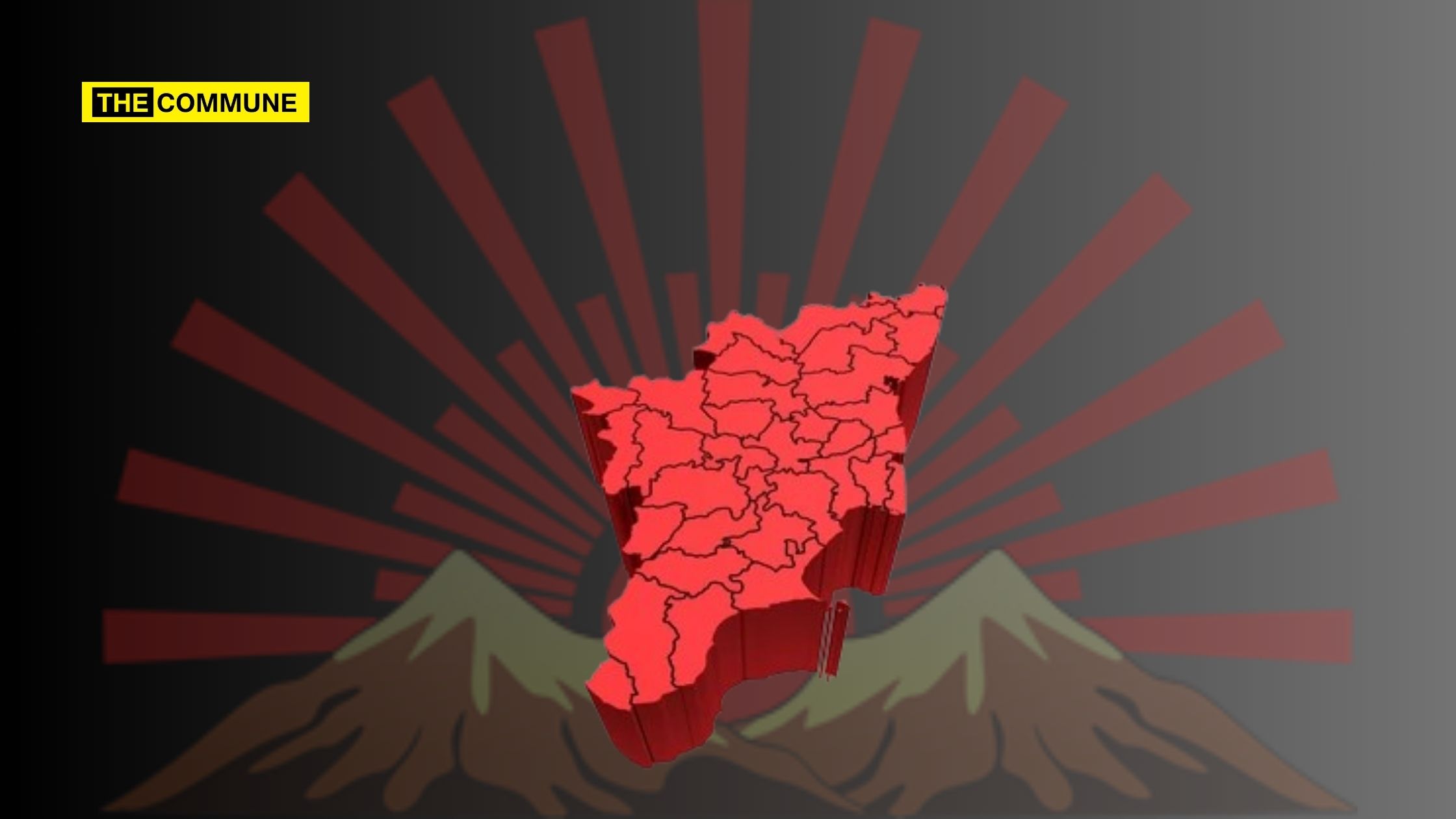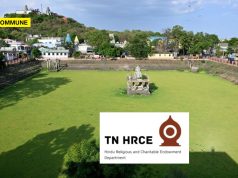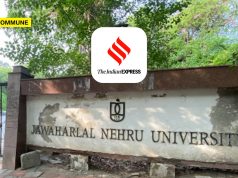
Typically, politicians in Tamil Nadu, particularly those from the Dravida Munnetra Kazhagam (DMK), assert that the central government, led by any ruling party, tends to overlook the concerns of southern states, echoing the sentiment encapsulated in the saying, “North Is Flourishing, South Is Perishing” as coined by the former Chief Minister and founder of DMK, Annadurai. Their reasoning behind this claim is that the central government allegedly provides a lesser share of tax distribution to states in the south, despite these states contributing more in taxes compared to their northern counterparts.
Ironically, it appears that the DMK should be reminded of their own statement, as since coming to power in 2021, they seem to be staying true to the statement “North Is Flourishing, South Is Perishing” when it comes to their own budget allocations. This year’s budget allocations seem to consistently remain within the confines of Chennai, occasionally extending to Kanchipuram and Chengalpattu, without crossing the borders to benefit the broader northern regions majorly.
Tamil Nadu comprises 38 districts, each characterized by distinct strengths and weaknesses shaped by their historical, socio-political, and economic landscapes. However, the current DMK government appears to predominantly concentrate on Chennai, neglecting the aspirations of other districts. These regions are often acknowledged only when infrastructural developments, such as the establishment of bus stands, or the naming of new arenas, occur. Notably, instances like the Annai Anjugam Ammal Bus Stand in Senji, Viluppuram, and the Kalaignar Centenary Jallikattu Arena in Keelakarai, Madurai, reflect this pattern.
https://www.facebook.com/photo.php?fbid=755265653301030
2024 Tamil Nadu Budget Has A Special Focus On Chennai
Here we list the budget allocations for areas in and around Chennai for the upcoming financial year.
- Cutting-edge public infrastructure facilities, such as an urban public square featuring natural landscapes, exhibition halls, and open-air theaters, will be constructed at Island Ground cost of ₹104 crore, and modern amenities will be added to the beaches at Besant Nagar, Ennore, and Kovalam cost of ₹100 crore.
- A State of Art advanced Film City will be developed in Poonamallee, Chennai at a cost of ₹500 crores.
- The Adyar River, originating from Guduvanchery in the Chengalpet district, is slated for restoration and beautification at a cost of ₹1500 crore.
- A ‘Global Start-up Summit, is set to be organized in January 2025 in Chennai providing a platform for prominent startups and successful young entrepreneurs.
- A Modern ‘Kalaignar International Convention Centre,’ covering an area of 300,000 square feet, is set to be constructed along the East Coast Road in Muttukadu, Chennai.
- A comprehensive facility showcasing handlooms and handicrafts is set to be established in Chennai at a cost of ₹227 crore.
- A special package of ₹1000 crore is allocated especially to North Chennai.
The budget expenditure for Chennai alone amounts to ₹3,431 crore from the total mentioned above.
"தமிழ்நாடு பட்ஜெட்டில் சென்னை https://t.co/CnV8a4gCkW | @mkstalin |@TThenarasu | #BestCM | #BestCMBestBudget | #TAMILNADUBUDGET2024 |#TNAssembly2024 | #TAMILNADUBUDGET | #Budget2024 | #Budget | #MKStalin | #ThangamThennarasu | #DMK | #ADMK | #EPS | #EdappadiPalaniswami | #BJP… pic.twitter.com/POrXjHB15L
— News7 Tamil (@news7tamil) February 19, 2024
Budget Allocations Inadequate For Other Districts
It has been noted that when it comes to other districts in Tamil Nadu, their allocation is inadequate, often overlooked, or scarcely noticeable, except for Madurai and Coimbatore. In particular, coastal districts appear to be the most impoverished and highly neglected among all regions.
It seems to tell a story that the DMK feels that districts like Thanjavur, Pudukottai, Madurai, Salem, Perambalur, Namakkal, and Dindigul primarily require attention only in terms of irrigation, continuous drinking water supply, and safe drinking water. Other economic activities in these districts seem to be self-sustaining, leading to a limited focus in the TN Budget 2024, where the emphasis is predominantly on addressing water crises in these specific regions.
- Initiation of the second phase of the ‘Extension, Renovation, and Modernization of Grand Anicut Canal system’ at an estimated cost of ₹400 crore, benefiting 2.3 lakh acres in Thanjavur and Pudukottai Districts.
- Additionally, efforts ensure continuous 24×7 drinking water supply in Madurai and Salem Corporations. A collaborative water supply project, using the Kollidam River as the source, will serve approximately 65,000 individuals in Perambalur Municipality and the SIPCOT Industrial Complex in Erayur and Padalur within the Perambalur District.
- To provide safe drinking water to around 200,000 residents in 216 rural settlements across four Panchayat Unions in Namakkal district, a joint water supply scheme utilizing the Cauvery River as the source will be implemented in Senthamangalam, Erumapatti, Kapilarmalai, and Paramathi.
- Furthermore, a comprehensive water supply project utilizing the Vaigai River as the source will be undertaken at a specified cost. This initiative aims to benefit approximately 600,000 residents across 425 rural habitations, including Dindigul Corporation, Chinnalapatti, and Sevukambatti Town Panchayats, as well as Panchayat Unions of Attur, Nilakottai, and Vathalakundu.
Infrastructure & Economic Diversification Across Districts
In the Tamil Nadu budget for the year 2024, infrastructure plans were announced, and these included the establishment of textile parks and industrial centers in Karur, Erode, Virudhunagar, Madurai, and Coimbatore, among the 38 districts. However, the question arises about the application of the concept of economic diversification, as these announcements predominantly focus on developed areas, raising concerns about the equitable distribution of development initiatives.
In the domain of infrastructure development projects, the TN budget for 2024 reflects the DMK’s central emphasis only on road construction and extensions across various districts. These projects, with a combined estimated cost of ₹665 crore.
Surprisingly TN 2024 budget unveiled plans for the establishment of 10 mini textile parks by the Government across different districts, such as Karur, Erode, and Virudhunagar, with a budget allocation of ₹20 crore. Meanwhile, progress still continues on the Mega Integrated Textile Region and Apparel Park in Virudhunagar, which was initiated with a signed Memorandum of Understanding (MOU) with the central government in March 2023.
Fortunately for Madurai, there are two upcoming projects. The first is the Industrial Innovation Centre, covering 26,500 sq. ft with an estimated cost of ₹24 crore. The second project involves TANSIDCO’s plan to construct a three-storied industrial complex on a 5-acre plot in Sakkimangalam Industrial Estate with an investment of ₹118 crore and job opportunities for 4,500 individuals.
Coimbatore, on the other hand, is quite fortunate with two industrial projects and additional offers of recreational facilities. TANSIDCO plans to construct a four-storied industrial complex with plug-and-play facilities at Kurichi Industrial Estate in Coimbatore district at a cost of ₹37 crore. ELCOT is set to undertake the development of an IT Park in two phases in Vilankurichi, Coimbatore with an estimated cost of ₹1,100 crore. Moreover, a library and science center dedicated to Muthamizh Arignar Kalaignar will be established in Coimbatore, along with a model home named ‘Poonjolai’.
Coastal Districts
Coastal districts of Tamil Nadu consist of Chennai, Kancheepuram, Tiruvallur, Nagapattinam, Thiruvarur, Thanjavur, Pudukottai, Ramanathapuram, Thoothukudi, Kanniyakumari. However in the TN budget 2024, only ₹700 crores were seen to be expended on them.
- Coastal protection and infrastructure projects, including the construction of bait arches, fish landing centers, dredging, and artificial reefs, will be initiated in districts such as Kanyakumari, Nagapattinam, Ramanathapuram, Thanjavur, Mayiladuthurai, Thiruvarur, Chengalpattu, Villupuram, Thiruvallur, and Thoothukudi with an approximate cost of ₹450 crore.
- Furthermore, significant beach development projects encompassing renowned beaches like Marina in Chennai, Ariyaman in Ramanathapuram, Kayalpattinam in Thoothukudi, Kodavilai in Tirunelveli, Kameswaram in Nagapattinam, Kattumavadi in Pudukottai, Silver Beach in Cuddalore, and Marakkanam in Villupuram to secure blue flag certification with an estimated investment of ₹250 crore. While three beaches of Chennai Besant Nagar, Ennore, and Kovalam cost of ₹100 crore.
- In addition, the establishment of India’s inaugural Tamil Nadu Olympic Water Sports Academy is slated for Pirappanvalasai in Ramanathapuram district.
Vishnu Venugopal, the Managing Director and CEO of Guidance Tamilnadu addressed a session in December 2023 titled ‘Tamil Nadu’s region-wise growth: A trend-setter’ at the ‘Tamil Nadu Unlimited’ summit organized by The Hindu in Chennai. He highlighted that a significant portion of the Gross State Domestic Product (GSDP) in Tamil Nadu is generated by eight districts. Additionally, Venugopal pointed out that the Hosur belt has become a prominent electric vehicle hub, and Thoothukudi is poised to emerge as a hub for green hydrogen. Neither Krishnagiri nor Thoothukudi found a place of economic importance in this year’s budget.
Evaluating DMK Budget Allocation And Resource Redistribution
Referring to the data from the Department of Economics and Statistics in the Statistical Handbook of Tamil Nadu-2020-21, the leading 10 districts with the highest Net District Domestic Product at Constant Prices (Base year 2011-12) in Lakhs of Rupees for the year 2019-20 are as follows: Thiruvallur: 10,664,047; Chennai: 9,242,907; Coimbatore: 9,202,231; Salem: 4,021,715; Tiruchirapalli: 4,703,782; Thiruppur: 4,468,865; Erode: 5,427,567; Namakkal: 4,405,812; Madurai: 4,136,006; Vellore: 5,755,807.
Conversely, the bottom 10 districts with the lowest Net District Domestic Product at Constant Prices (Base year 2011-12) in Lakhs of Rupees for the year 2019-20 are as follows: Perambalur: 366,541; Thiruvarur: 946,177; Nagapatinam: 1,391,778; The Nilgiris: 1,073,492; Sivagangai: 1,207,133; Theni: 1,254,923; Ariyalur: 806,814; Pudukkotai: 1,601,370; Dharmapuri: 1,892,624; Ramanathapuram: 1,338,195.
Do you notice any significant support allocated by the DMK government in its budget to the districts ranking in the bottom 10, or at the very least, a return of resources to the districts that have contributed significantly to the state’s GDP?
(Note: District domestic product (DDP) is the total monetary or market value of all the finished goods and services produced within a district of a state in a specific time period.)
Unaddressed Socio-economic Challenges Under Dravidian Model Budget
With each passing day, the growing disparities in per capita income among districts in Tamil Nadu pose significant challenges for the state. This trend is concerning as it can result in a variety of socio-economic issues, including heightened income inequality, limited access to opportunities, regional imbalances, health disparities, and migration patterns. Ultimately, these challenges were never addressed by the Dravidian model government in the budget.
Per Capita Income (2019-20) for different districts of Tamil Nadu pic.twitter.com/odOVlZQ0t9
— India in Pixels by Ashris (@indiainpixels) December 7, 2022
Disparities In MSME Support Across Tamil Nadu Districts
Insufficient attention has been given to underdeveloped areas when it comes to offering support to Micro, Small, and Medium Enterprises (MSMEs) that are crucial for the country’s economic development. These enterprises play a pivotal role in various aspects, including employment generation, fostering innovation and entrepreneurship among youths, economic diversification by reducing reliance on specific industries, and contributing to the resilience of the economy against external shocks. They also contribute to local and regional development, raising living standards and addressing socio-economic disparities. Additionally, MSMEs contribute to financial inclusion, particularly in rural and underserved areas.
Analyzing Micro, Small, and Medium Enterprises (MSMEs) data for the fiscal year 2020-21 in Tamil Nadu and comparing with TN budget 2024 reveals surprising neglect in most districts, both in terms of attention and understanding of the concept of MSMEs.
Examining districts with the highest number of MSMEs, the top 5 include Chennai with 47,086 MSMEs, Coimbatore with 30,058 MSMEs, Salem with 19,008 MSMEs, Tiruchirappalli with 9,475 MSMEs, Thiruppur with 20,424 MSMEs. Conversely, the bottom 5 districts with the lowest number of MSMEs include Perambalur with 1,124 MSMEs, Thiruvarur with 2,694 MSMEs, Nagapattinam with 3,406 MSMEs, The Nilgiris with 1,220 MSMEs, Sivagangai with 3,324 MSMEs.
In essence, the Tamil Nadu budget for 2024 appears to be a superficial attempt at financial planning, lacking substance and inclusivity for the majority of districts. The discrepancy between promises and allocations raises concerns about the true commitment to holistic development and whether the budget truly serves the interests of the entire state or merely caters to select areas, primarily Chennai.
The Dravidian governance model aligns with its founder’s belief that the North is thriving while the South is struggling. When such disparities exist within their own region, it raises questions about accusing the central government of creating inequality. Maybe it will do some good for the DMK government to look within before placing accusations.
(With inputs from Department of Economics and Statistics & Tamil Nadu Finance Department)
Subscribe to our channels on Telegram, WhatsApp, and Instagram and get the best stories of the day delivered to you personally.




